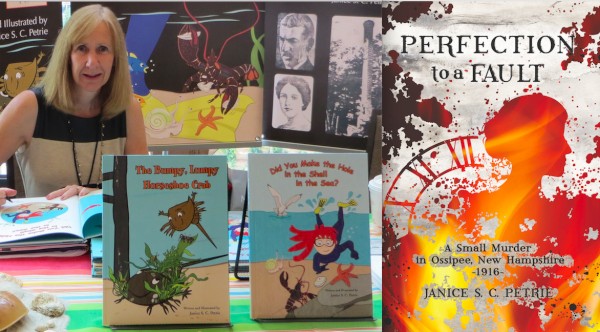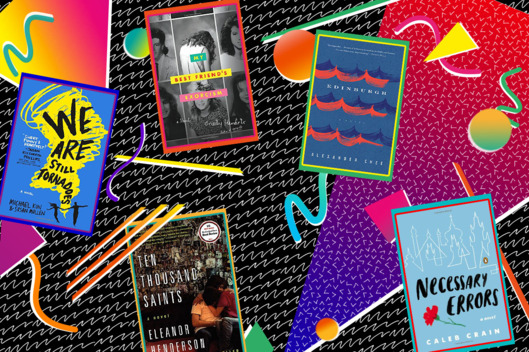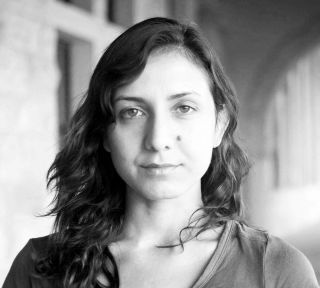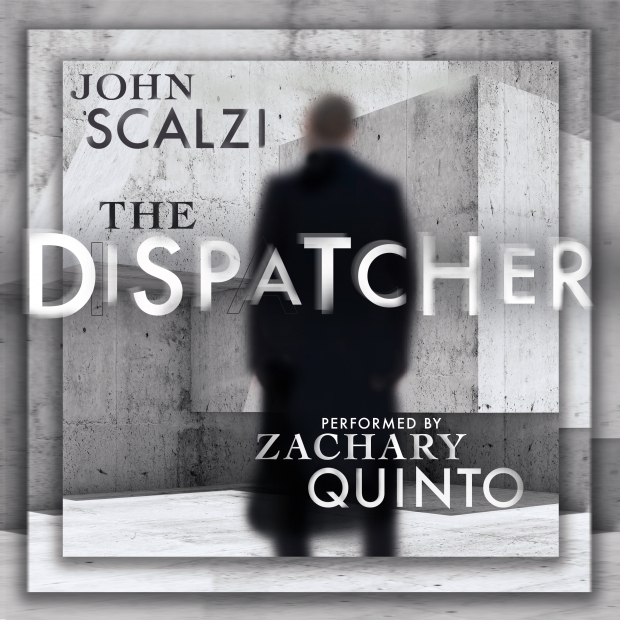
Want to Succeed at Self-Publishing? Harness Your Passion: Tips from an Indie Author
publishersweekly.com – Monday November 7, 2016

Janice Petrie’s life has always fueled her writing. Her experience as an outreach specialist for the New England Aquarium helped inform her picture books, while growing up near -- and once staying the night in -- a haunted, lakeside cottage gave her non-fiction a unique perspective. When she decided to try self-publishing, she wanted to “produce well-written books that readers would find entertaining and interesting.” Perfection to a Fault, an indie true crime tale of a gruesome 1916 murder of a wife by her husband, received a positive review from Publishers Weekly, with our reviewer calling it “crisp” and “quick-moving,” and praising Petrie for “expertly put[ting] details into historical context.”

How Do You Capture the 1980s in Writing? Six Novelists Discuss Re-creating the Decade
vulture.com – Friday October 28, 2016

Writers never make things easy on themselves, and nostalgia is no exception. While the phenomenon has a rich literary tradition that sifts down like a dreamy haze through the novels of Marcel Proust, Kazuo Ishiguro, and Virginia Woolf, it’s no mean feat to convincingly render a lost time and place on the page. In film and music, the signifiers of another era are seen and heard, viscerally apparent, with no need for explicit discussion or exposition. Authors, meanwhile, are often stuck describing the particulars.
So how do writers transport us backward through time, especially to a recent decade such as the ever-popular 1980s, without weighing down their stories? We asked six novelists:
Horror Authors Take a Stab at Self-Publishing
publishersweekly.com – Saturday October 22, 2016
Every literary genre has its subgenres, but there is perhaps no genre so packed with niches as horror fiction. You’ve got your supernatural horror, postapocalyptic horror, fantasy horror, sci-fi horror, comedy horror, and then all the vampire, werewolf, and zombie horror. It’s a long list of genres for the long list of authors who self-publish in this increasingly fractured and versatile category.
Some horror writers are making a killing at self-publishing, but that’s far from the norm. More likely, self-published horror writers are seizing independence to get out work that isn’t finding a home with traditional presses—and many of them are passionate enough to keep going despite making little profit.
Design Options for Self-Publishers
publishersweekly.com – Saturday October 22, 2016
Book design may be the most self-effacing form of design anywhere. After all, its mission is to so perfectly smooth the interaction between author and reader that the designer disappears from the equation. If a book is readable, enjoyable, easy to interact with, and seamlessly communicates the ideas of the author, I would say the design is a success because nobody notices it.

This week in fiction: Ottessa Moshfegh on writing predators and their victims
newyorker.com – Monday October 17, 2016

The inspiration for writing “An Honest Woman” came when I met someone who was so physically unattractive I felt sorry for him, and so I kept mum and polite while he lamely attempted to seduce me. I never called attention to the fact that his motivations were transparent and that, by ignoring him, I was protecting his dignity. I was in denial, and he was delusional.

What really happens to manuscripts sent to publishers?
abc.net.au – Monday October 10, 2016

There's a lot of mystery surrounding the book publishing process. But what really happens to the slush pile of unsolicited manuscripts that are sent to publishers by wannabe writers?

How Jonathan Ames Approaches Writing for TV
splitsider.com – Tuesday October 4, 2016

Jonathan Ames began his career writing novels and performing in small theaters around New York City before landing a job writing and starring in his own pilot for Showtime. As a newcomer to running his own TV show, Ames acclimated himself to the fast-paced position through on-the-job training. After creating and working on three seasons of the HBO cult classic Bored to Death, Ames moved to STARZ to help develop and oversee the Seth MacFarlane-produced Blunt Talk, a comedy centered around popular TV newsman Walter Blunt (Patrick Stewart). Blunt Talkpremiered its second season last night and Ames appears to have found his rhythm as a showrunner. He approaches each season of the show by constructing an “idea document” which is later molded into ten scripts. I spoke with Ames about what it’s like writing comedy for Patrick Stewart, the difference between crafting novels and television scripts, and working on a talk show with Moby.

How writing an audio-first novella changed John Scalzi’s writing process
theverge.com – Tuesday October 4, 2016

Audiobooks are more popular than ever, and as more people listen to novels on their phones or computers, publishers are beginning to experiment a bit more with the form. One example is John Scalzi’s The Dispatcher, which arrives today from Audible. The novella is debuting as an audiobook months before a print edition, and presented some interesting opportunities for its author.

Challenges for Publishers in Uncertain Times
publishersweekly.com – Saturday October 1, 2016

The demise of print has been famously and erroneously predicted for years. In the early 1990s, the CEO of a major professional publisher announced that “print is dead.” To his credit, he publicly recanted that statement several years later. Despite the incredible advances in digital technology and new opportunities for selling e-products, print sales have remained the bread and butter of almost all publishers.

5 Writing Tips From Creative Powerhouse Tavi Gevinson
bustle.com – Saturday September 24, 2016

Writers talking about writing is usually a 50/50 deal. Either their words are powerful and shed new light on an act we thought was so simple, or else it's so sterile and heartless that you're reminded how terrible learning how to write can be. The good news is when it's good it's great and probably better beyond that. Some writers have inspired generations with their words of wisdom and vulnerable introspections about their writing journey. One such person — who is presumably far from the end of her journey — is Tavi Gevinson.
Get the free newsletter | Submit a news item or article | Get Writers' News for your website





